Researchers believe they are finally closing in on the location of the first Acadian settlement in the area of southwestern Louisiana known as Acadiana. After ten years of research and archaeological digs, the village of Loreauville along Bayou Teche appears to be the site where 200 exiled Acadians began what they called New Acadie.
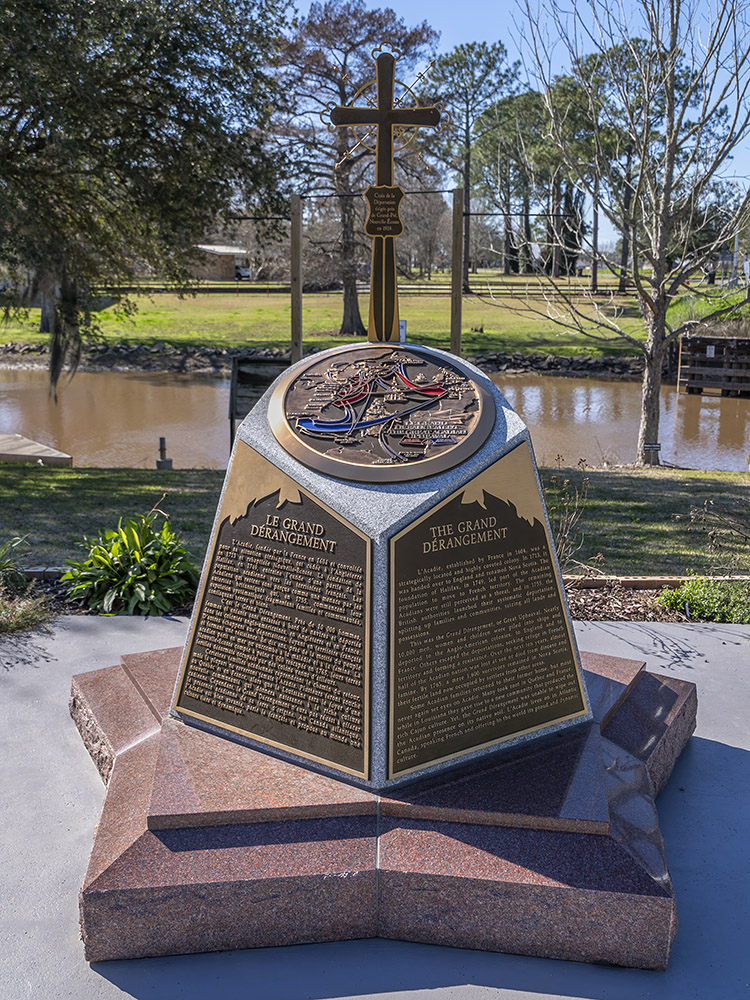
loreauville identified as first acadian settlement
That first large group of Acadian settlers were led by Joseph ‘Beausoliel’ Broussard. Loreauville Mayor Brad Clifton was not surprised by the discovery, “We knew that the Acadians settled here with the family name Broussard being so prevalent here.” The British exiled the French-speaking Acadians from Nova Scotia, Canada, by the British in the 1750’s. The Acadians, who arrived in 1765, were given land grants in the area along Bayou Teche to farm and raise cattle.
tv story on the search for new acadie
digging through records and dirt
Finding the likely site of the Acadian’s first settlement required years of research. A team of archaeologists and students from nearby University of Louisiana at Lafayette dug in fields and backyards near Bayou Teche looking for artifacts dating to the late 1700’s. Dr. Mark Rees of UL Lafayette, who led the research, showed me several pieces of pottery and ceramics that likely belonged to the first Acadians. He holds up a small piece of pottery and explains, “This tin enameled ceramic dates from the right time period.” And when those discoveries are matched with land grants given to the early Acadians, “Then we have two independent lines of evidence to suggest that people were living there in the 1760’s,” Rees says.
pieces of the past
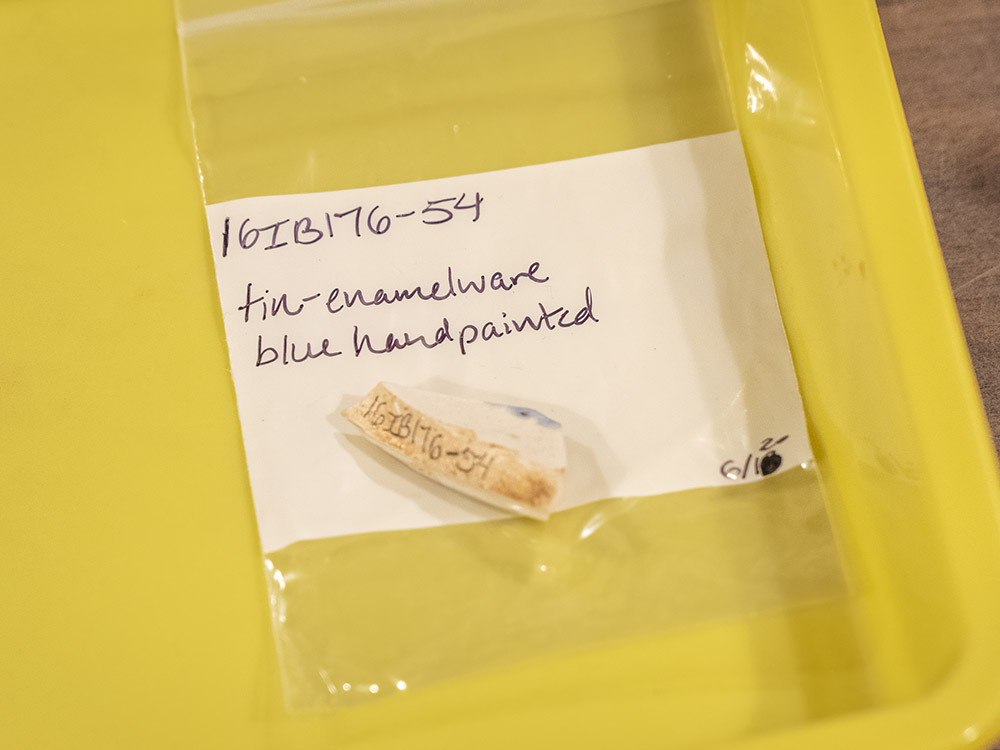
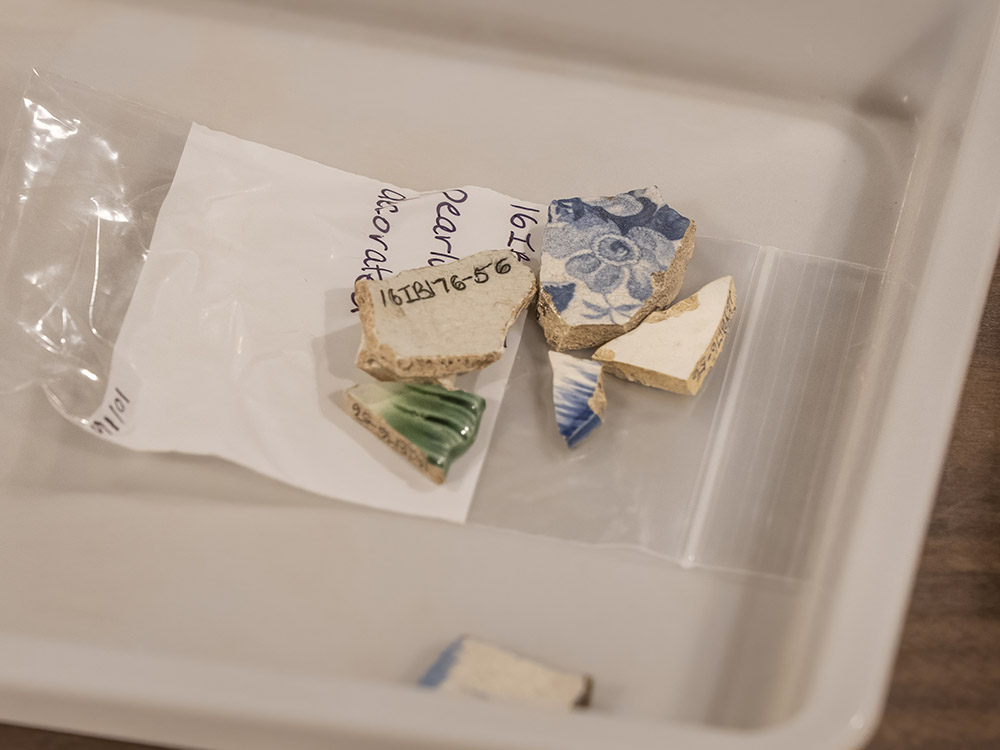
a difficult start for the acadian settlement
Records show that 39 of the first 200 Acadian settlers died of disease within months of arriving in the Loreauville area. And that has archaeologists interested in finding the location of those first burials. Rees suggests that old family cemeteries are a likely location. He explains, “The sons and daughters knew exactly where their parents and grandparents were buried”. And that makes it likely that those unmarked graves are still connected to known family cemeteries.
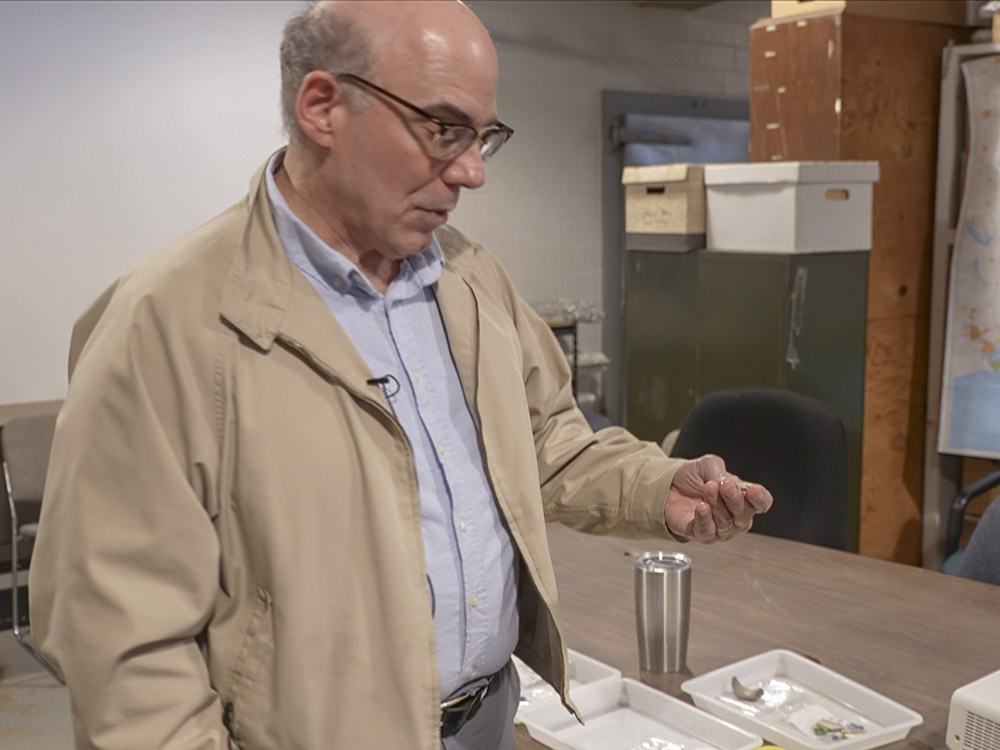
Dr. Mark Rees holds a ceramic fragment believed from the first Acadians
the search continues for acadian settlement
Dr. Rees and his team have identified three areas along Bayou Teche in Loreauville that are likely locations of the first Acadian homesteads. Rees is confident they are closing in, “The circles are large enough and the historical documentation is strong enough to where I can say yes, I have no doubt.
a gathering place on the bayou
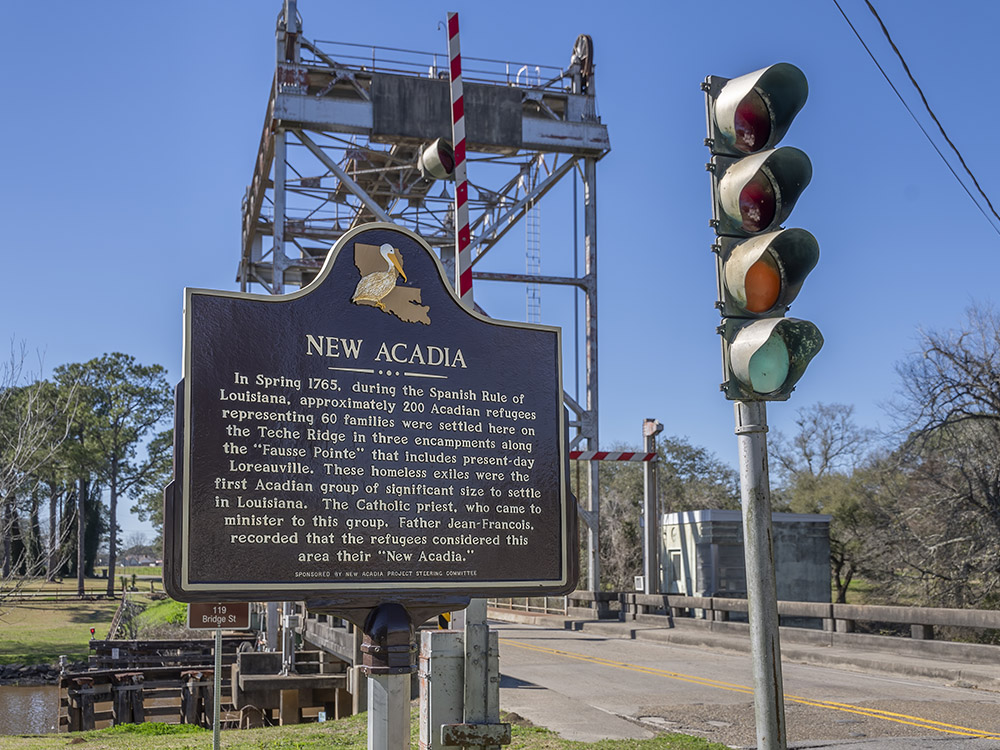
Mayor Clifton believes that the new Acadian Odyssey Monument is important for French Canadians. It provides a place where they can connect with their exiled ancestors who left Nova Scotia and eventually settled in south Louisiana nearly 260 years ago. In addition to the bayou-side monument, Clifton says the village has plans to expand the park area.
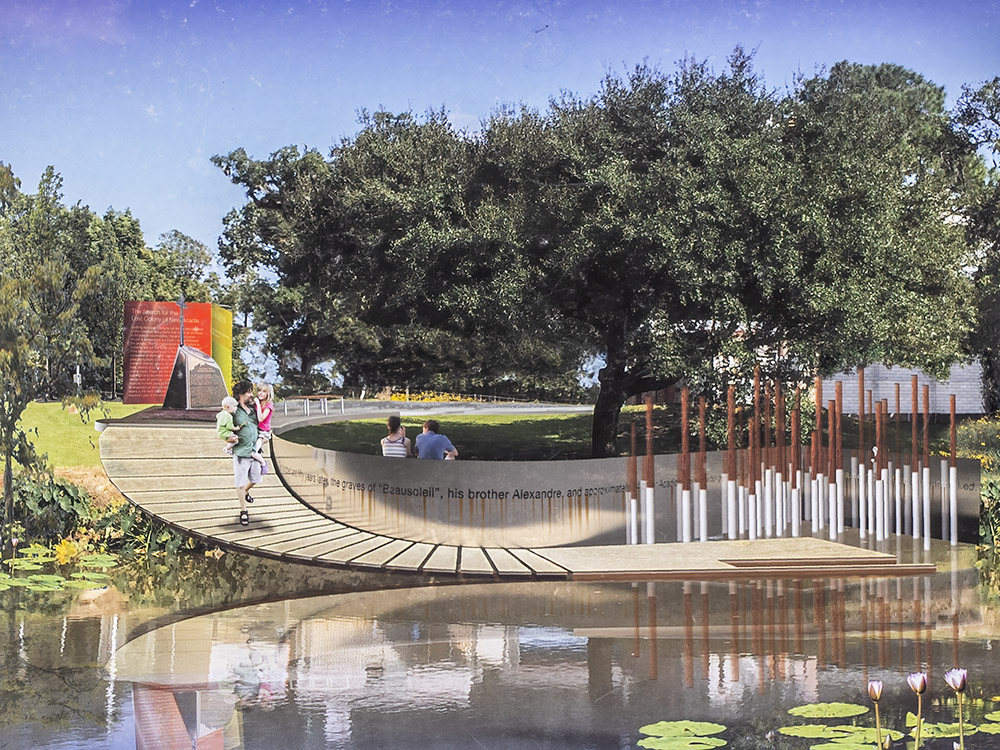
getting there
The Acadian Odyssey Monument and park with a kayak launch is located at the Railroad Avenue drawbridge over Bayou Teche, one block west of Hwy 86 in Loreauville.
Railroad Ave, Loreauville, LA

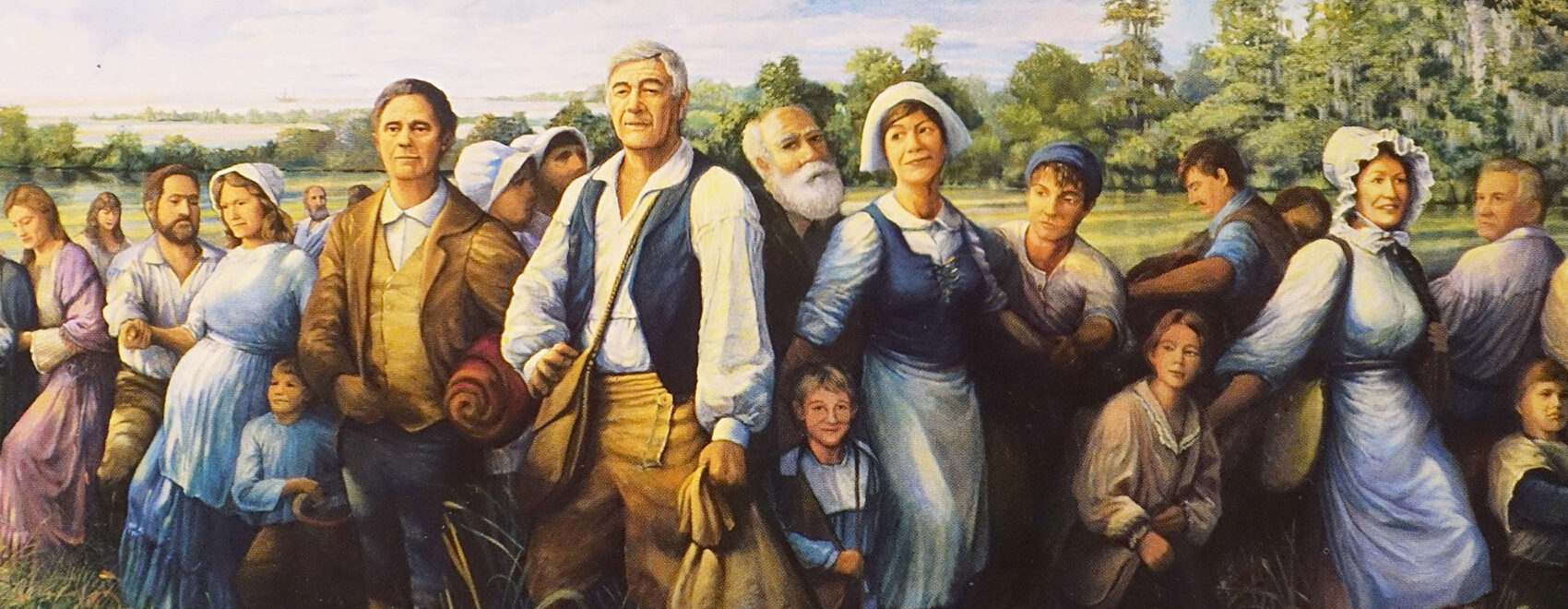
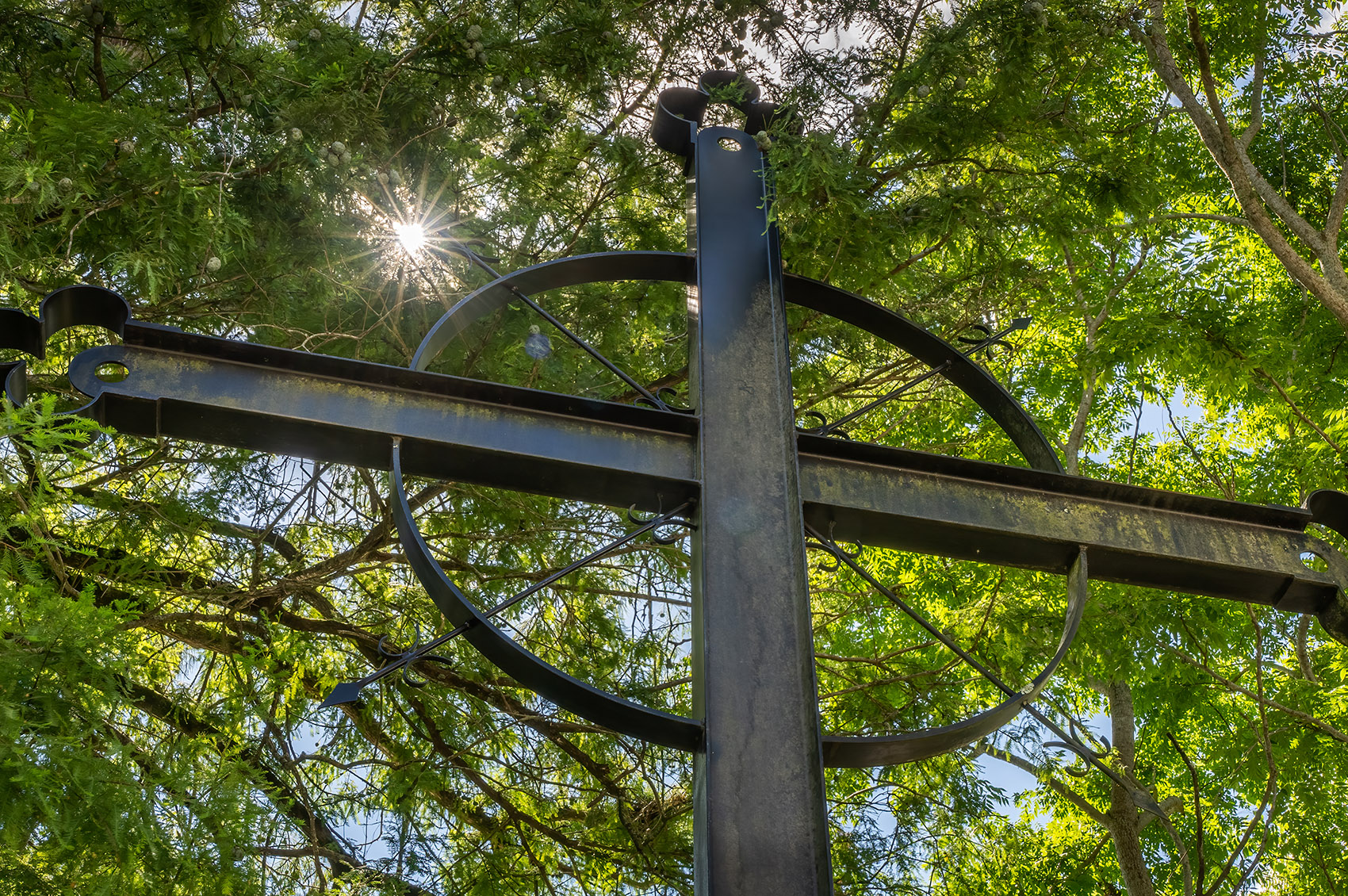
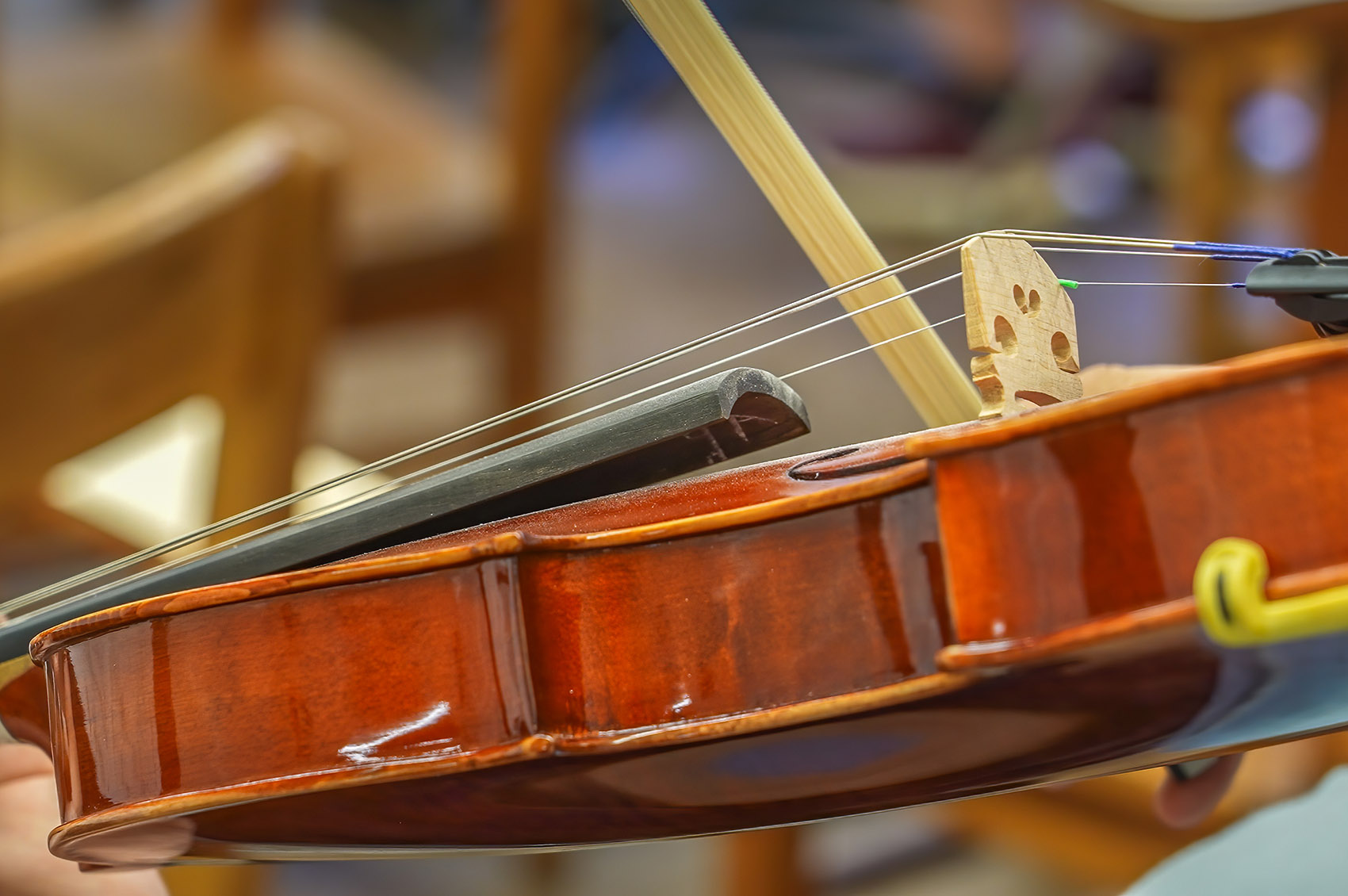
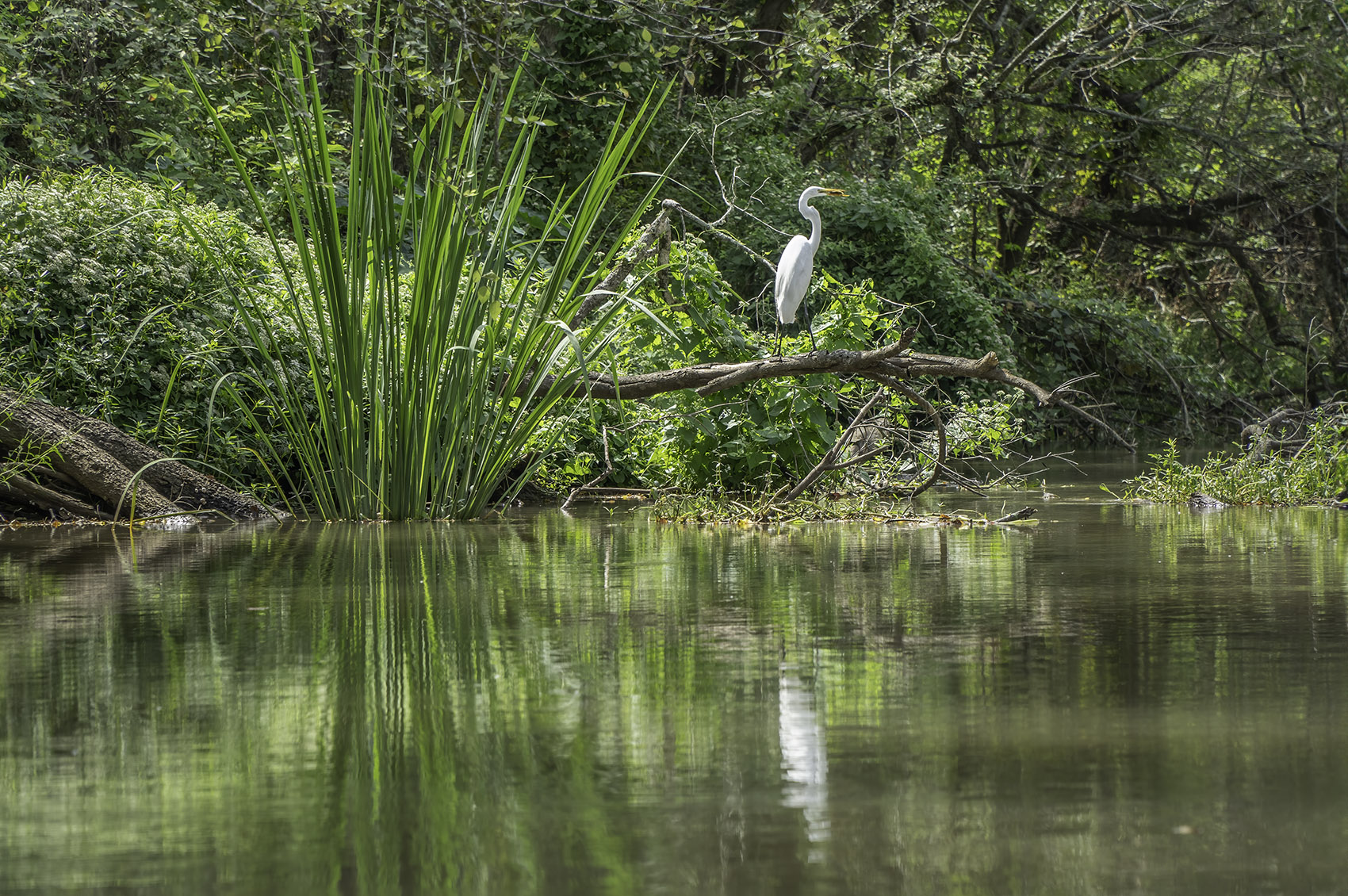
Jonathan
Thank you Dave for yet another fantastic and insightful episode about Louisiana history!
Shelley Ordoyne
Why were the land grants at that particular place ?
Spencer Chauvin
There were land grants all over. There Attakapas & Cabanocey were the big ones at the time in the mid 1760’s. Attakapas being over by Lafayette, and Cabanocey being in St. James Parish. Many of the grants were given to the original owners and copies not made, so there is very little evidence of the grants themselves until the 1780’s, but we have census data to show when/who was living where.
Rebecca Cundiff
I’d suggest reading The Founding of New Acadia or if you can stomach mispronunciations in the audiobook, its on audible. This article confuses me though because he mentions Loreauville and his book was written in the 90s. He also has lots of other books that discuss this, but New Acadia would be a good place to start.
Linda Dunn
I grew up in New Brunswick Canada as an Acadian with a last name of Breau. I would love to read any French literature found.
Becky Crawford Plummer
My uncle has documented evidence that our ancestors that were part of the exile first settled near where the current bridge in Milton is located. One brother supposedly stayed in that area and the other brother continued West and eventually settled near where the Texas Louisiana border is. Their last name was Vincent.
I don’t know how much my uncle has but it’s a lot of documentation regarding our ancestors.
My great grandparents settled in the Vinton Louisiana area where my grandparents are from. I my mom and dad and me and my brothers were born in Vinton.
I also know of an area on the Vermilion River where there were unmarked graves. My brother’s father in law owned the property and eventually developed a subdivision called Meadowridge around this land but they could not build on this property because of the unknown graves. Our children played out there playing paintball etc.
I believe they were eventually given approval to move the graves and I believe it has now been built on.
Our ancestry has always been important to our family and therefore documented and passed down to the next generation.
My ancestors were Vincent’s and Benoit’s.
Connor duhon
67 guys great article!